by Charlotte Kovalchuk and Ann Marie Kennon
Due to the recent national crisis, Many non-profit organizations in Georgetown are finding new and adaptive ways to raise money and work together.
The resulting collaborations are having greater impact on fundraising and changes in partnerships, which means better service to those in need.
BiG Blessings
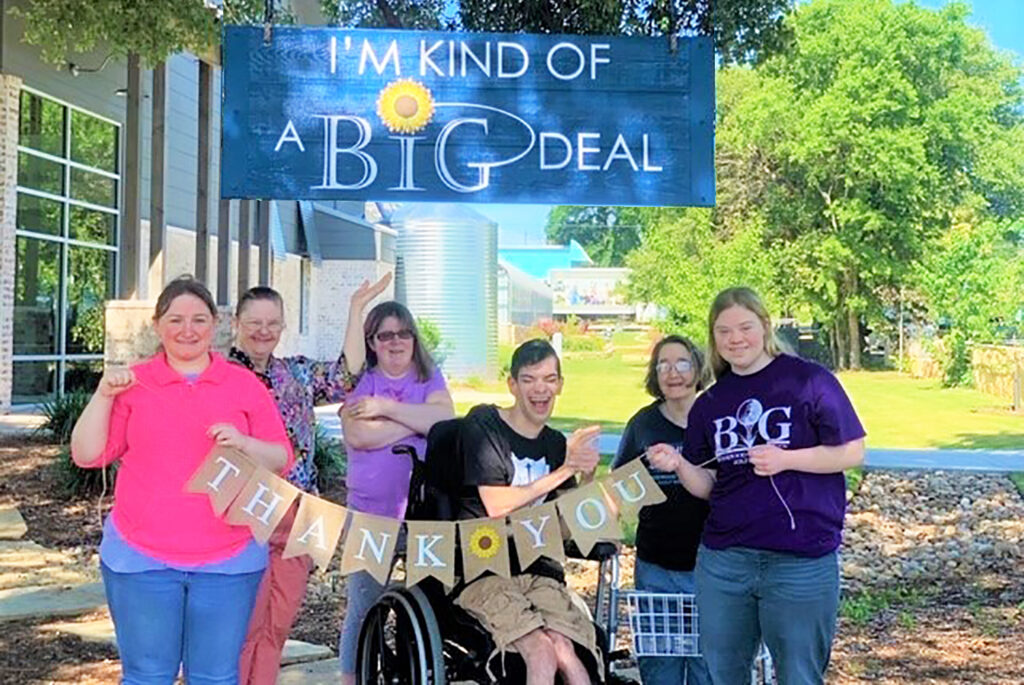
Far from stopping the Brookwood in Georgetown (BiG) mission to help adults with special needs lead meaningful lives through vocational opportunities, COVID-19 merely changed the way the nonprofit fulfilled it.
Through virtual services and an expanded online store, BiG learned to adapt during the health crisis and emerged a stronger, more close-knit family.
“Not that I would wish this on anybody, but there were some real blessings in disguise,” says founder and executive director Erin Kiltz. “It made us even more grateful than ever before for BiG and the community it offers our citizens and the support to our citizens’ families.”
To continue operating during the pandemic, workers had to reinvent the BiG experience. Citizens switched to making jewelry, pottery, and masks from home, and stayed engaged with friends and staff through Zoom meetings, daily devotionals, and fun costume parties. The café and shop began curbside service, and the nonprofit’s online store, which had offered only a few products before coronavirus, now sells more than 160 items from the shop at 905 N. Church St. The café and shop reopened May 4, and BiG has welcomed back all 80 citizens across three campuses.
It’s full speed ahead for BiG, which will launch The BiG Pie Company July 31 during the dedication of the new Amazing Grace workspace building. Construction of the organization’s first two residential homes for citizens will also begin in the next month.
Riding Through
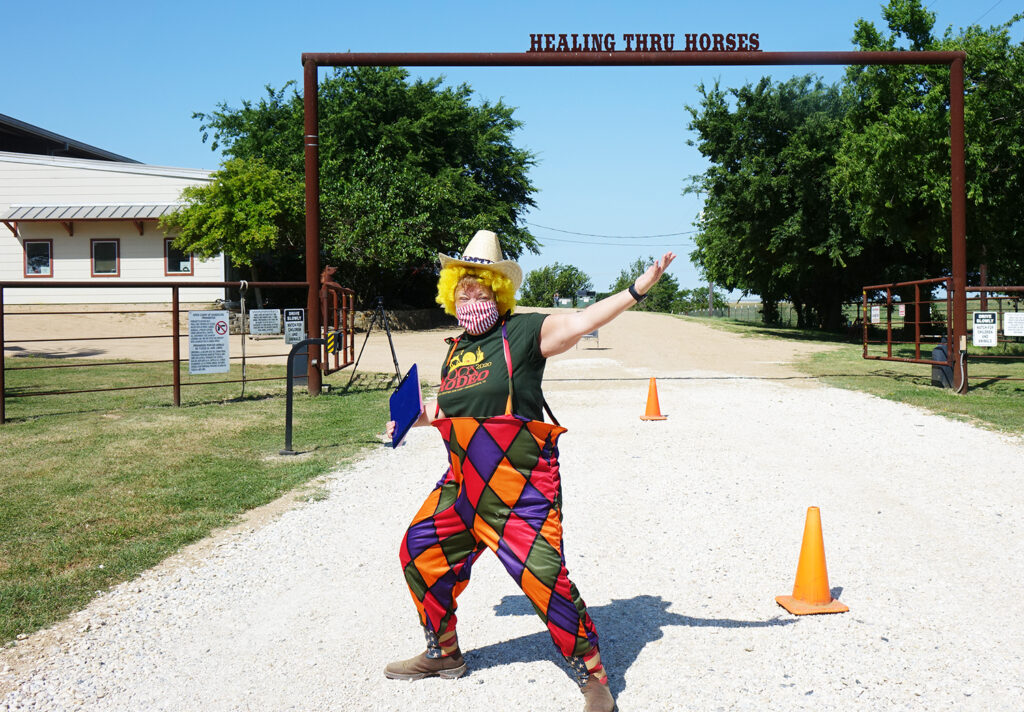
For Ride On Center for Kids (ROCK), a nonprofit that relies on the physical connection between the horse and rider, COVID-19 hit hard.
The organization provides equine-assisted activities and therapies to children, adults and veterans with physical, cognitive and emotional challenges. It closed its doors in March, reopening in June with an initial wave of nine riders out of its usual weekly 200.
During the closure, staff cared for the facility and its 31 horses while staying connected with participants through Zoom meetings. Moving into the digital world was challenging for the nonprofit, which depends on riders’ physical presence, but ROCK made up for it by hosting a drive-by version of Rodeo Day, a time full of tears and smiles with more than 60 participants and their families cruising through the arena to see their horses. ROCK honored its volunteers the same way on Volunteer Appreciation Day.
“We’re getting really good at handling whatever life throws our way,” marketing manager Tina Clary says.
One of those curve balls was having to reschedule ROCK’s annual barn dance, now set for September 26. The delay put a financial strain on the nonprofit, which already suffered from losing $90,000 in rider tuition. A Pony Up for ROCK campaign helped by raising more than $50,000.
Through it all, workers have striven to see COVID-19 not as a setback, but as an opportunity to learn how to do better.
“It’s important that we not just make it through, but come out on the other side thriving,” Tina says.
Behind the Masks
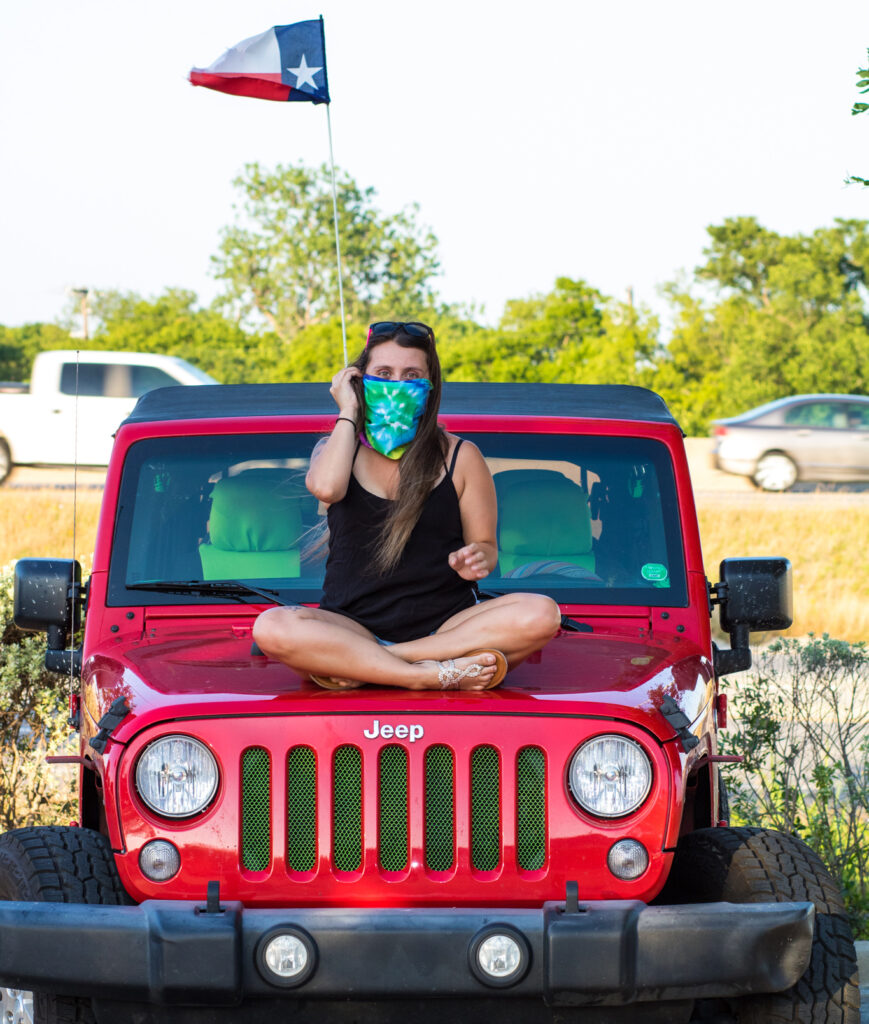
Having to cancel six fundraisers forced Nick Austin to find creative ways to raise money without holding big gatherings.
Nick is the founder of We Are Not Broken and photographs women with scars to show they are beautiful, strong and above all, not broken. Nick launched a Behind the Masks in Williamson County project to highlight life during the pandemic.
“It’s about capturing a time in history and also for the benefit of We Are Not Broken,” she says.
She has photographed more than 100 masked residents, from business owners and politicians to high school seniors, health care workers and people with special needs. They will be featured in a book later this year that showcases how they have been impacted by the pandemic. Nick’s vision includes a poster exhibit circling the courthouse, “the heart of Williamson County.”
Another COVID-19 casualty has been WANB’s annual gala, which Nick will replace with a 5K run January 17 to coincide with We Are Not Broken Day.
She has also been working on another book since before COVID-19, which will feature We Are Not Broken women in the hopes of changing the beauty narrative.
“Society puts a label on someone because they’re scarred or have physical abnormalities. They’ve conquered a major life battle and come out changed physically. Now they’re ridiculed for that because of the way they look. That’s what I’m trying to change,” Nick says.
“Let’s look at scars as strength, a fight, a victory. We shouldn’t look at someone as broken.”
Onward in Advocacy
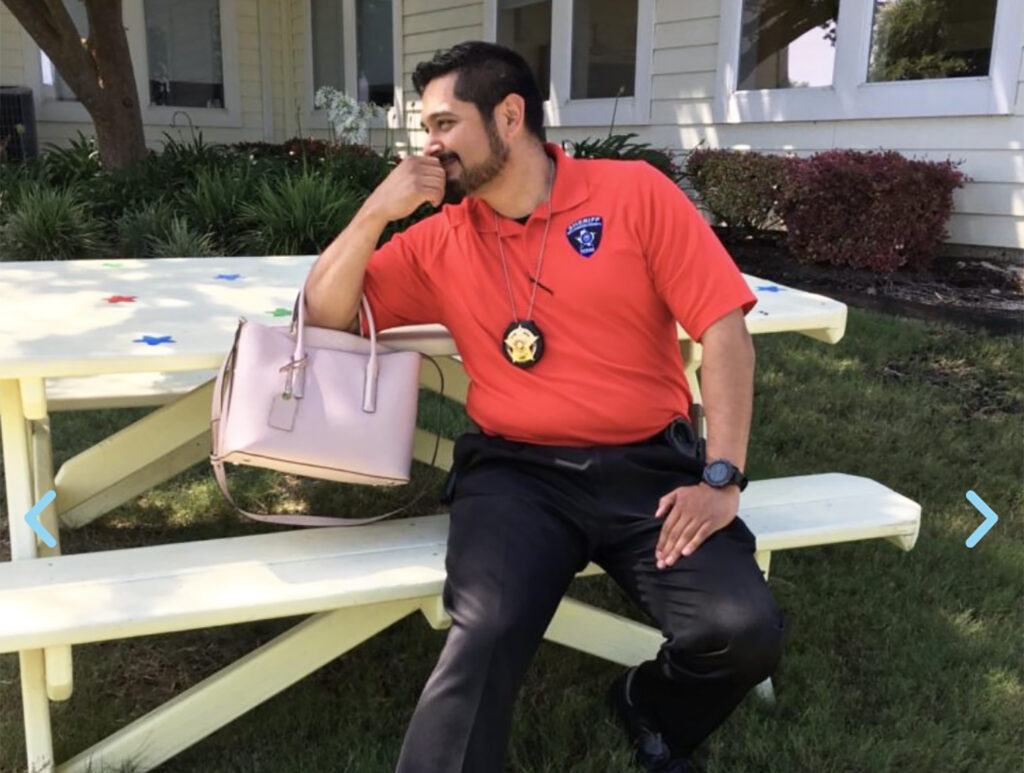
While supporting and advocating for child victims of abuse and violence requires a lot of face-to-face interaction, the Williamson County Child Advocacy Centerdid not miss a beat in providing counseling, health resources, and investigative support, despite recent changes in operations.
CEO Kerrie Stannell explains, “Unfortunately, abuse does not stop and we did not have the option to shut down, so we maintained strong virtual connections wherever possible. We had significant success in telehealth and, for some clients, being able to get services in the safety of their own home was helpful. We are pleased to know this is a viable, and achievable option when we need it. Some clients are responding better than before, so we’re glad we had the opportunity to discover that.”
Tiffany Sturman, Director of Community Engagement, says the team has been pleasantly surprised to find how much they can accomplish online. “This pushed us to re-think our online environment; converting traditional events into something people can do in their homes. I’m very optimistic about adding new layers to our fundraising and awareness efforts. Big galas are exciting, but they are really only possible once a year. We are now thinking about trivia nights and bi-monthly engagements that don’t require as many resources to pull together, but help keep us top of mind with our supporters.”
The Center had scheduled a “Hope, Heroes & Handbags” bingo fundraiser, featuring firefighters and police officers as purse ‘models,’ but converted to Facebook Live and a raffle. The models are still in play and anyone on Facebook can attend. “The raffle is open to those who purchase a $50 ticket,” Tiffany says, “But we are thrilled about how easy it will be for anyone in the world to tune in and learn about us while enjoying the show.”
On the business side, WCCAC also created training for an online audience, and a virtual tour. What was previously only available to local residents and professionals is now open 24/7 to a worldwide audience, and Kerrie says they have seen traffic from Houston to as far as India and Greece. “It is wonderful to see interested parents, or people looking to augment their understanding of critical topics. If the pandemic had not triggered a greater need, we may never have had the opportunity to develop this new, online presence. Educating people beyond our County is something we look forward to continuing as we maneuver changes and challenges to come.”
Kerrie and Tiffany agree they just want the community to have fun with their events, share a passion for the cause, and hopefully attend an online event that will inspire them to participate as a donor, volunteer, or advocate in the future. Visit Wilcocac.org/purse-bingo to purchase a ticket to the July 17 virtual event.
Helping Hands
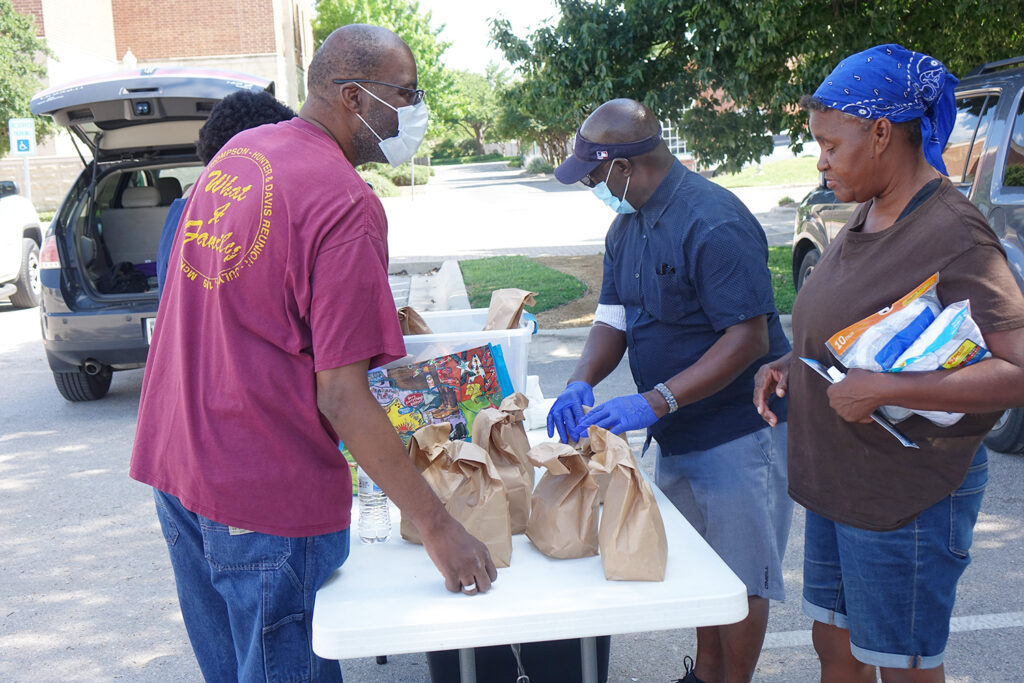
Stay Home, Stay Safe orders were problematic for Georgetown’s homeless, but Bob Weimer of Helping Hands of Georgetown says the pandemic only served to alter the way in which he served this community. “People have their own spaces, live in proximity to each other in tents or other shelters for safety, but they distanced themselves. We know where they are and we came to them.”
Bob’s volunteers continued to serve nearly 1,400 bag lunches each week, and instead of Sunday dinner at the library, Helping Hands created and distributed Family Bags to-go. “We anticipated, and saw the number of families in need nearly double since March. A Family Bag has three complete meals and we have also delivered more than 400 bags of pantry goods as well.”
Helping Hands also added greater quantities of clothing and toiletries for up to 600 people each week to help them get back on their feet. “We partnered with Days Inn to help families with children; we are not willing to have families sleep in a vehicle unless we have to. People deserve the dignity of a shower, communications via cell phones and minutes provided by Cricket. Most of all, there was nothing to stop us from providing a non-judgemental ear to listen and guide people to any resource we can find.”
Serendipitously, Helping Hands recently moved into permanent office space, which facilitates safe storage for fresh produce, meal preparation, and space to sort and store clothing.
Bob says his volunteers and friends are enjoying the changes and additions and, moving forward, he plans to continue the new with the old. “Family bags will be a blessing for families with children in school.”
Helping is as easy as stopping by the library parking lot at 3:30pm Mon-Thurs or 4:30pm on Sundays to donate clothing, toiletries, or money. You can donate financially on HelpingHandsGTX.org.
Strength Without Bounds
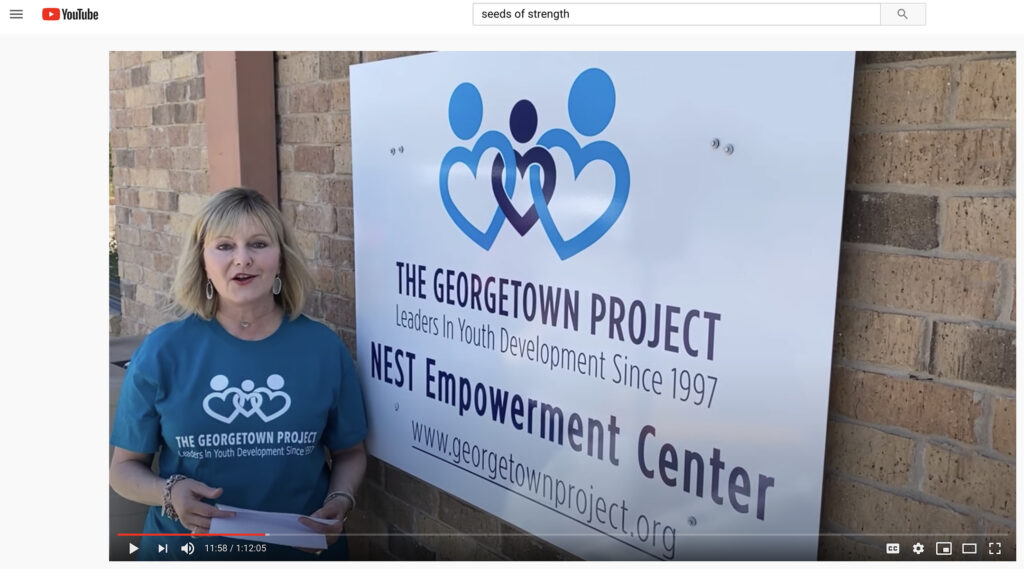
Not only did Georgetown’s non-profits adapt to new partnerships and processes, one of the city’s biggest benefactors did the same—to help themselves continue to help others.
Since 2009, the SEEDS OF STRENGTH giving circle has given nearly $1.5million to Georgetown’s non-profits and charities. Normally, organizations submit applications and finalists make stage presentations at the annual membership meeting to advocate for votes and a share of the combined funds.
This year, the pandemic caused several changes, but didn’t stop the members from sharing $210,000 among 12 Georgetown grantees.
While the members were not able to meet in person to review the applications, the committee provided online packages to describe and detail the accomplishments and missions of each. Following, the president and committee chair live-streamed the four-minute presentations on YouTube, to allow members the opportunity to ‘meet’ the staff and volunteers who have boots on the ground.
Members were sent online ballots and voted electronically from among a mix of prior grantees and new non profits, all of whom were carefully vetted and ranked by the grants committee. The 2020 recipients were Boys & Girls Club Georgetown ($25,000), Brookwood in Georgetown ($25,000), Capital IDEA ($25,000), CASA of Williamson County ($24,000), Faith in Action Georgetown ($19,500), Girlstart ($20,000), Hope Alliance ($25,000, STARRY, Inc. ($20,000), The Georgetown Project ($25,000); and $500 each for Habitat for Humanity of Williamson County, ROCK, and Sacred Heart Community Center.
Terri Boroczk, Grants Chair, was pleased with the result, however unconventional it may have been; “While we wish we could have gathered in person for this most important Seeds of Strength meeting, we appreciate our members’ flexibility in working with us in convening in this virtual fashion. Now more than ever, our wonderful nonprofits are providing help to our Georgetown residents in need.”
